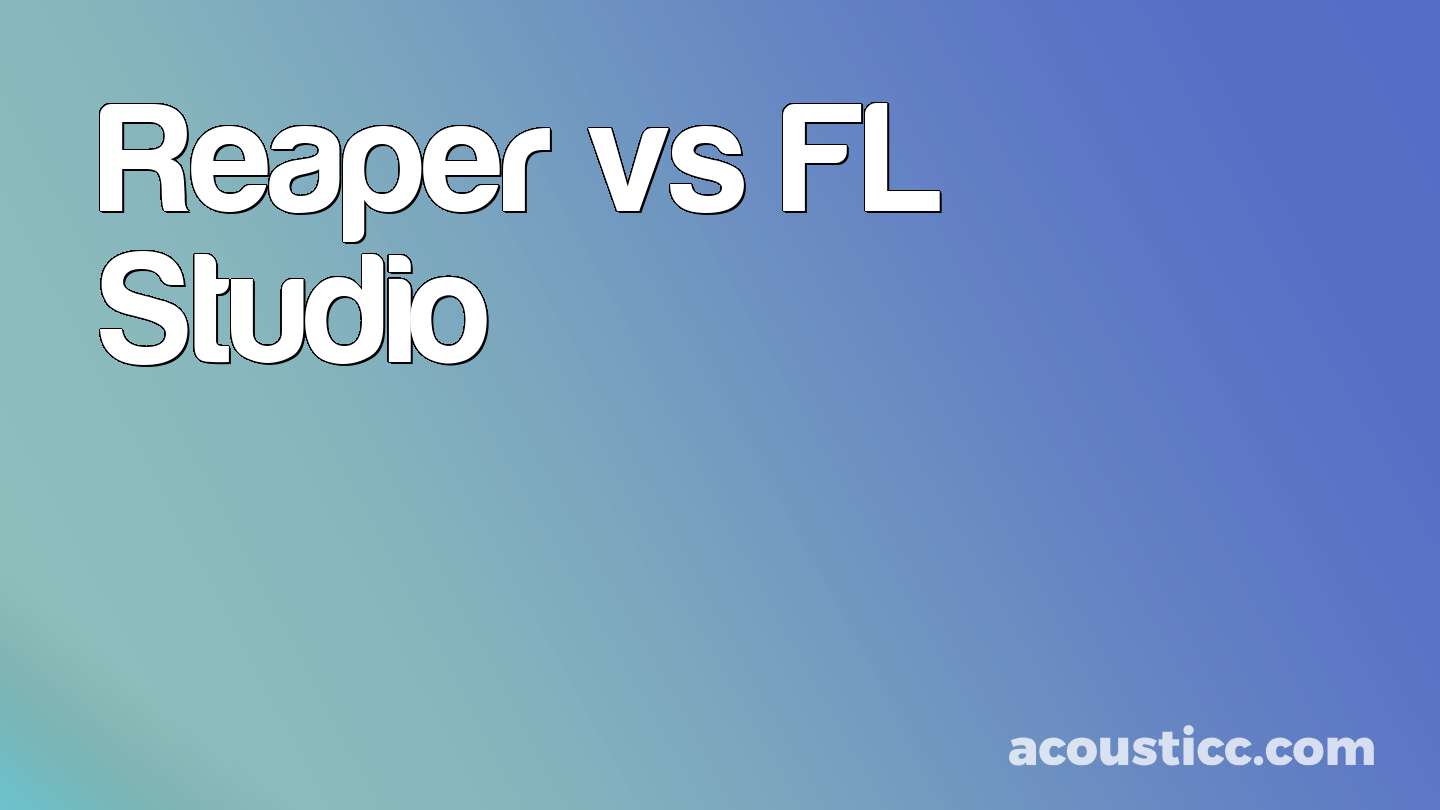Is Reaper Better than FL Studio? A Comprehensive Comparison
When it comes to choosing a Digital Audio Workstation (DAW), Reaper and FL Studio often come up as top contenders.
As someone who has used both extensively, I’ve gathered some insights that might help you decide which is better suited to your needs. Let’s dive into the features, usability, and overall performance of these two powerful DAWs.
Introduction
Choosing the right DAW is crucial for any music producer. The comparison between Reaper and FL Studio is a common topic among music producers, as both offer unique features and capabilities.
This article aims to provide an in-depth comparison to help you make an informed decision about which DAW is the best fit for you in 2024.
User Interface and Ease of Use

- FL Studio: FL Studio is renowned for its user-friendly interface. It features a visually appealing design with an intuitive layout that’s easy for beginners to navigate. The pattern-based workflow is particularly popular among electronic music producers. If you’re new to music production, FL Studio’s drag-and-drop functionality and visual approach can make the learning curve much less steep.
- Reaper: On the other hand, Reaper offers a more customizable experience. While its interface might seem less polished at first glance, it allows for extensive customization. You can tailor the layout, shortcuts, and overall look to fit your workflow perfectly. This flexibility can be a huge advantage for seasoned producers who prefer a personalized setup.
Features and Functionality
- FL Studio: FL Studio comes packed with a wide range of built-in instruments and effects. It’s particularly strong in the realm of electronic music production, thanks to its powerful synthesizers and drum machines. The Piano Roll in FL Studio is often cited as one of the best in the industry, making MIDI composition a breeze.
- Reaper: Reaper is known for its lightweight installation and efficient performance. It supports a vast array of plugins and VSTs, making it incredibly versatile. Reaper’s routing capabilities are unparalleled, allowing for complex signal flows that are essential for advanced mixing and mastering. Additionally, Reaper’s scripting capabilities enable users to create custom functions and automate repetitive tasks, significantly boosting productivity.
Performance and Stability

- FL Studio: FL Studio is resource-intensive, which can be a drawback for those with less powerful computers. However, it’s constantly being updated to improve performance and add new features. Its stability has improved significantly over the years, making it a reliable choice for many producers.
- Reaper: Reaper is known for its exceptional performance and stability. It’s lightweight and runs smoothly even on less powerful machines. This makes it an excellent choice for those who need a DAW that won’t bog down their system. Reaper also has a very responsive development team, and updates are frequent and meaningful.
Pricing and Licensing
- FL Studio: FL Studio offers various editions, each with a different set of features and price points. While the initial cost can be higher, Image-Line (the company behind FL Studio) provides lifetime free updates, which is a significant long-term saving.
- Reaper: Reaper’s pricing model is one of its most attractive features. It offers a fully functional, 60-day free trial, and even after the trial period, it remains affordable. Reaper’s licensing is straightforward and cost-effective, with discounted licenses available for non-commercial use.
Community and Support
- FL Studio: FL Studio boasts a large and active community. There are countless tutorials, forums, and resources available online, making it easy to find help and inspiration. The official support from Image-Line is also robust, with a comprehensive knowledge base and responsive customer service.
- Reaper: Reaper’s community might be smaller, but it is incredibly dedicated. The Reaper forums are a treasure trove of information, and the user base is known for being helpful and knowledgeable. Additionally, Reaper’s official documentation is extensive and well-maintained.
Conclusion

So, is Reaper better than FL Studio? The answer depends on your specific needs and preferences.
If you’re looking for a DAW that’s user-friendly, visually appealing, and packed with features right out of the box, FL Studio might be the better choice for you. However, if you value performance, customization, and affordability, Reaper could be the perfect fit.
Ultimately, both DAWs are powerful tools capable of producing professional-quality music. I recommend trying the demos of both Reaper and FL Studio to see which one feels right for your workflow. The best DAW is the one that helps you bring your musical ideas to life most effectively.

By considering factors such as user interface, features, performance, pricing, and community support, you can make a more informed choice between Reaper and FL Studio. Read more articles at Knowledge Base.
- BPM Tapper: Tap to check and Find Tempo Online - February 4, 2025
- How to Soundproof Windows: Top Methods Explained - September 22, 2024
- 8 Essential Ukulele Chords for Beginners - September 19, 2024
